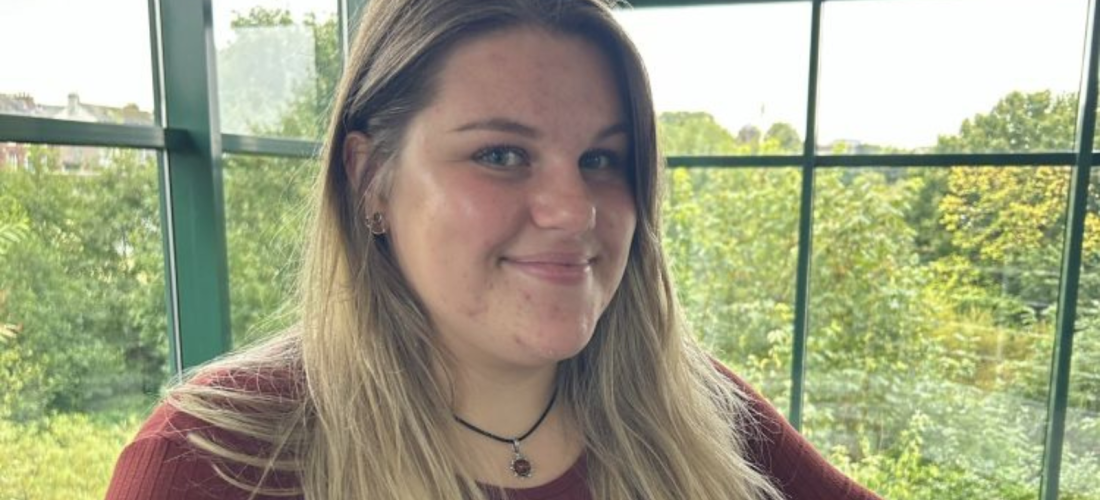During their induction period new advocates are asked to reflect on their learning, why advocacy is crucial and what advocacy means to them. Over the years this has been delivered in many forms such as artwork, poems, and PowerPoint presentations.
Eloise wrote these heartfelt words and presented them to her peers. We thought they would be a wonderful way to start Advocacy Awareness Week and the conversation around the impact of advocacy.
What is Advocacy?
On the surface, advocacy is supporting someone to have their voice heard.
It’s being a Relevant Person Representative, their Independent Mental Capacity Advocate, their Care Act Advocate. It’s attending care plan reviews, ensuring your person is involved in their care plan choices, liaising with social workers, care home staff, doctors, friends, family to help your person achieve what they want. It’s supporting DoLS assessments to ensure decisions are made in your persons best interests. It’s helping your person voice what they want to eat, where they want to live, how they want to be treated.
It’s being present in the conversation, actively listening, using open and closed questions to get important answers. It’s having a person-centred, empathetic approach, promoting independence and self-advocacy. It’s providing instructed and non-instructed advocacy and playing detective to make sure your person has the best possible decisions made for them, if they can’t make those decisions themselves. It’s making sure you know your relevant legislation and backing up everything with facts, in a room full of professionals.
It’s raising safeguarding issues if your person is in dangerous situations. It’s knowing how to spot the signs of abuse and neglect. It’s knowing the correct procedures for your person, knowing how to raise a 21a challenge. And all these things are vital in providing an outstanding service for your person, there’s no doubt about that.
But what is advocacy beneath the surface?
Advocacy is standing with someone in what may be their darkest moments, when they feel like everyone else has abandoned them. It’s giving the person who physically can’t speak, a choice. The first opportunity they may have ever had to make a choice for themselves. It’s giving the person whose memories are starting to fade the chance to do activities of their choice, that may reignite the spark on some of their happiest memories, only if it’s for a moment. It’s giving the person who is being passed from pillar to post in the world of social care a chance, to give their view, on their care, and influence decisions on their life.
Before we had access to technology, before the concept of industry and society, before we were separated by the colour of our skin, our age, our beliefs, we were one people. In early homosapien groups, helping someone wasn’t a question of judgement, it was just something you did. Everyone had a role to play, where no one would be left hungry or cold. But as technology advanced, and borders were created, suddenly helping other people required too much effort. We developed a concept of selfishness. And yes, there are groups out there dedicated to helping others. There are movements, like Black Lives Matter, Girls Rights to Education in Pakistan. And this is spectacular. But there are still people being abused in care homes, people whose choices have been taken away from them. It is only in the last 50 years that we stopped placing people with learning disabilities in institutions. At what point in history did we lose the concept of Human Rights? Why does there have to be a law in place to ensure that people are treated with dignity and respect?
Beneath the surface, we should live in a world where advocacy shouldn’t have to exist. But as advocates, we must remind the world that everyone is entitled to have a choice in their lifestyle, the food they eat, the clothes they wear, the relationships they form.
As someone whose brother is severely disabled and non-verbal, I have watched my whole life how restrictions have been placed on him, how my mum has had to be his voice, his advocate to allow him to live a life free of constraints. Where she has continually been up against supervisory bodies trying to give my brother the cheapest, most basic option without even considering what he wants. Because it’s the easy option. I’ve witnessed him live in a care home where he has been abused, had his choices taken away from him, his freedom, with bruises not only left on his body, but also on his mind. And now I am at an age where I’m able to contribute to being my brother’s voice, I will try with all my might to give him the life he deserves.
But it is not only my brother. There are thousands of people experiencing the same things as him, and as their advocate, I will try with all my might to give them the life that they deserve to live. And no, it’s not easy to do this. It’s not easy to constantly see the injustice and selfishness of some people. But why should we choose the easy option? The “easy” option is what has led a lot of people to end up in the situation they are in, because some people refuse to understand the concept of difference. But if we allow room for understanding, a space where we can celebrate our differences, our flaws, our perfections, our experiences and our choices, we may finally live in a world where empowerment is the centre of all of us.
And if we look beneath the surface, all anyone wants is to live their life free from judgement, scrutiny and abuse.
So, let’s start with leading everyone down the road to empowerment. That is advocacy.
